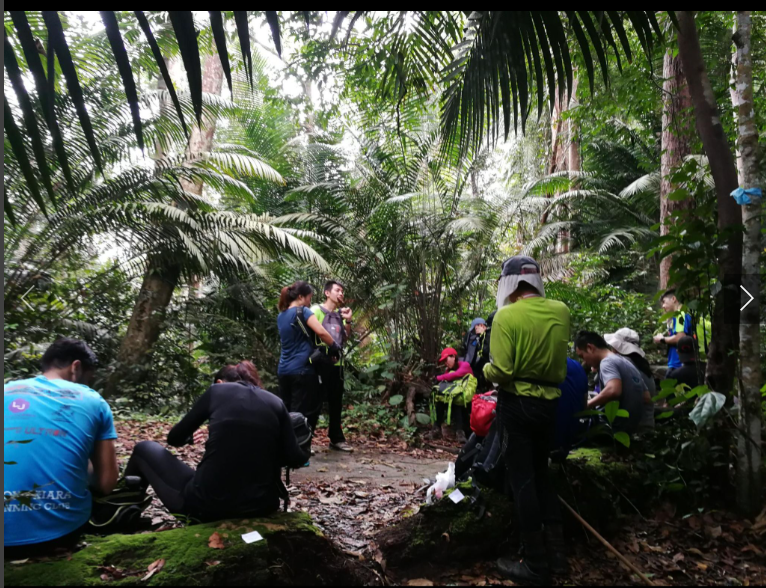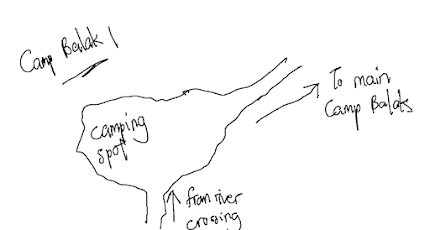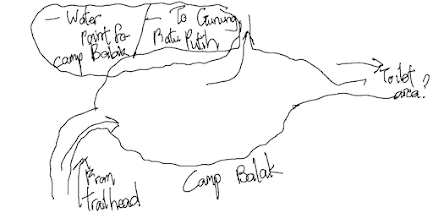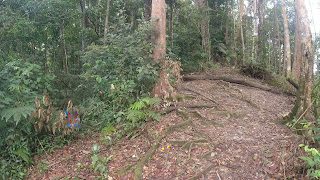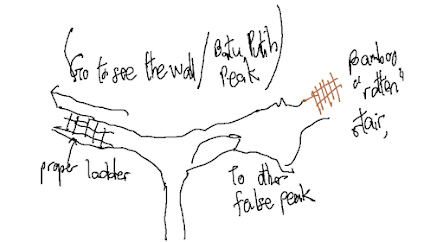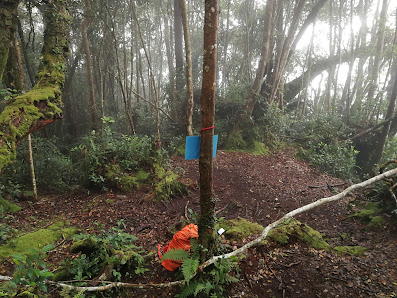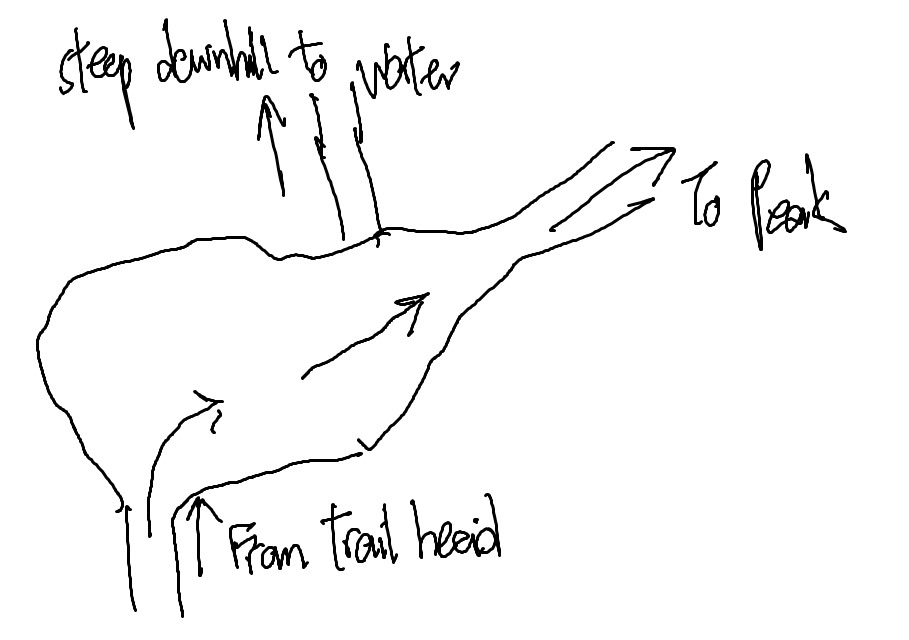Elevation Gain: 2,100m
Rated: 7.0/10
Gunung Batu Putih, 2,131m is the 8th tallest mountain in Peninsular Malaysia. This mountain is not an easy one despite it distance shown isn't a lot, it a technical mountain. You can choose to either dayhike or camp 2D1N.
 |
| GPX (river crossing without Gua Batu Azam and Camp Anaconda Water Point) https://www.strava.com/activities/1873092546 GPX Link: https://www.dropbox.com/s/93yo4sdqdrjnfaj/Gunung_Batu_Putih.gpx?dl=0 |
 |
| GPX (bridge rover crossing with Gua Batu Azam and Camp Anaconda Water Point) https://www.strava.com/activities/6960702820 |
The trail head is at "https://goo.gl/maps/QdKaWMUAyRmuPAHP9" or Pos Kuala Woh, Tapah can be set as location point. Permit needed and don't really have public facilities here with limited car park space. There is a water tank here to wash-up but not guarantee to have water at time.
Not far from the start of the trail head is their kampung. The road here can be confusing but one can ask around the village to find the trail start. (Side note: there are other group who will visit this pos initially to hire orang asli guide to bring them up the mountain. For now there is not need for guide but please make sure you know how to use GPX or someone know the trail well.)
After 2km, you will meet a river which isn't fun to cross and is preferred to use the bridge, although you will have to detour a bit.
 |
| The River Crossing, but it isn't really safe to cross. Extremely recommend you to walk a bit more (3) to use the bridge (It not scary as a lot always said zzz) |
Even during normal season, there is a river which can be quite tough to cross, unless you have some rope or someone who is very experience with fast-moving water river.
One of the well known camping spot is Camp Balak (There two Camp Balak, one is nearer to the river crossing and doesn't have sign board, 6.5km+. The other one is the main camp area where most will camp, 8km+).
Roughly at 10km, you will meet a junction that if you turn left, you will head toward Gua Azam. The trail isn't fun to hike in as rarely hiker go in. The last time I headed in, needed knife to cut through the fallen branch and others. There is also other junction not to far, but it a very steep trail but much shorter.
 |
| Gua Azam location is where my GPX run-off. (800m from the far end, 400m from the near end) |
The junction is the one with the tree blocking.
 |
| Gua Azam |
This place can't fit your whole kampung of hiker so if you decide to camp here, bring only a few. Comfortably you can fit at least 2 tents here. The cave floor is at an angle which your tent may slip off the cave. There is water source here which is some walk from our camp site.
 |
 |
| Water Source |
 |
| Gua Azam |
 |
| Rough Layout of Gua Azam At the camping ground, can walk around (behind) the cave to explore. |
Around 1.5km (11km+) after the junction is the false peak where you can see the wall. Also, turning right at this junction technically can bring you up the other false peak, but don't really recommend as there no safe way to reach up there. Before you reach this junction, there is alot of high ladder to climb but
After 2km (13km+), you will reach Camp Anaconda, you can camp here too but most people do that only if they are doing Trans-Batu (this Trans doesn't exist anymore sadly unless you reversed after the last peak of the 3 peak of the trans). There is water source here but you have to walk some distance and climb ladders downhill to get it.








